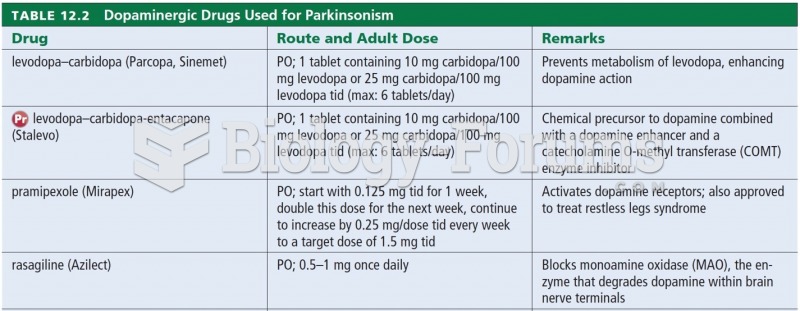|
|
|
A cataract is a clouding of the eyes' natural lens. As we age, some clouding of the lens may occur. The first sign of a cataract is usually blurry vision. Although glasses and other visual aids may at first help a person with cataracts, surgery may become inevitable. Cataract surgery is very successful in restoring vision, and it is the most frequently performed surgery in the United States.
Amoebae are the simplest type of protozoans, and are characterized by a feeding and dividing trophozoite stage that moves by temporary extensions called pseudopodia or false feet.
Street names for barbiturates include reds, red devils, yellow jackets, blue heavens, Christmas trees, and rainbows. They are commonly referred to as downers.
No drugs are available to relieve parathyroid disease. Parathyroid disease is caused by a parathyroid tumor, and it needs to be removed by surgery.
By definition, when a medication is administered intravenously, its bioavailability is 100%.
 Vapocoolant spray application while passively stretching the paracervical muscles. Take care to prot
Vapocoolant spray application while passively stretching the paracervical muscles. Take care to prot
 Empathy draws a more positive response from the patient because it is based on the willingness of th
Empathy draws a more positive response from the patient because it is based on the willingness of th





